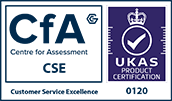Topic guide: Special Collections on the First World War
This is not an exhaustive list, but a selection of resources which are particularly relevant to researchers.
J.B. Priestley
Bradford-born writer J.B. Priestley served in the British Army from 1914-1919, in the ranks with the Duke of Wellington's West Riding Regiment, then as an officer with the Devonshires. The Archive includes his letters home, photographs and possessions.We also have many books and articles in which he directly or indirectly wrote about his experience, including the memoir Margin Released (Heinemann, 1962). Find out more:
- Number 28 of our 100 Objects online exhibition - Priestley and the Great War.
- Bradford in the Great War (History Press, 2007) includes a chapter by Alison Cullingford telling the story of Priestley's war experience through his writings.
- Much of the text of the war letters was reprinted in Priestley's Wars (Great Northern Books, 2008).
Bradford Technical College
Records in the Bradford Technical College Archive include references to wartime life in Bradford and to staff and students serving in the armed forces. See for example the entertainment for convalescent soldiers displayed in this 100 Objects exhibition article: Two 22nd Decembers.
The University of Bradford and Bradford College share a common ancestor: Bradford Technical College. The heritage collections at Bradford College include plenty of material from the War period.
BTC was under local council control during the War, so the West Yorkshire Archives Service holds many relevant Council records. Bradford: Remembering 1914-1918 by Kathryn Hughes (History Press, 2015) uses these records to shed light on the City's experiences.
Peace and politics collections
The archive of Serbian philosopher Dmitrije Mitrinovic includes fascinating, hitherto unseen, Great War material. Active in nationalist campaigning against the Austro-Hungarian empire, Mitrinovic came to London in 1914 to escape imprisonment.
Peace Pamphlets. Many of our pamphlets discuss the rights and wrongs of this War, including the Papers for War Time series.
Newspaper collections include runs of the Bradford Pioneer and Reynolds News for this period. These papers present independent socialist perspectives and are full of rich detail about the worlds their readers inhabited.
Research Papers of David J. Mitchell on Military Nonconformity includes correspondence and interviews with "absolutists" and other conscientious objectors during the 1960s.



